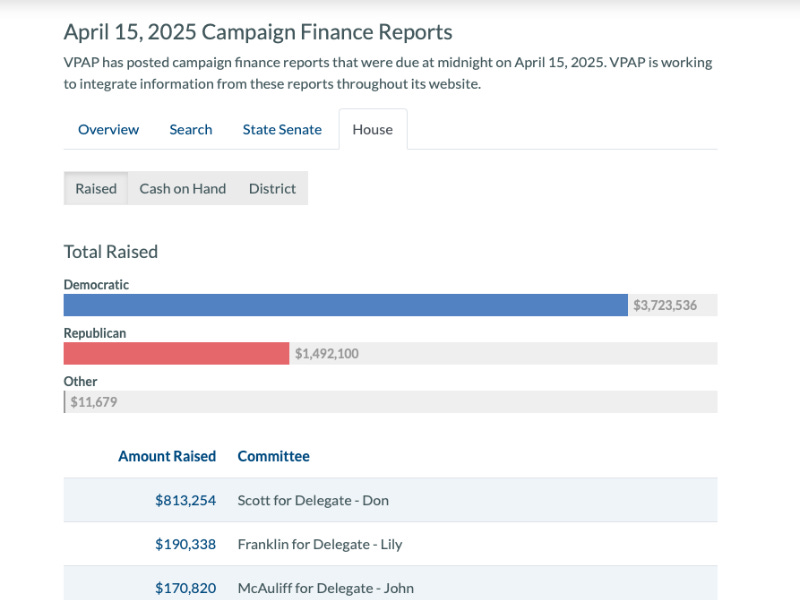Va. delegate candidates raise $5M in 1st quarter
The tally comes amid what promises to be an expensive statehouse battle, fueled by federal layoffs and anger at Washington

The 297 candidates for Virginia's House of Delegates have collectively raised $18.5 million in the first 15 months of the election cycle, according to new reports from the Virginia Public Access Project.
Democrats outraised Republicans in the first quarter of the election year with a total of $3.7 million from January 1st to March 31st, more than double Republicans' $1.5 million, according to VPAP.
Three of the top 10 highest earners are unchallenged incumbents in strongly Democratic areas, including House Speaker Don Scott, who has raised more than any other candidate so far.
Of the 10 best-funded candidates, four are running in competitive districts. In Virginia’s House District 82, a largely Black district which covers much of Petersburg and the area around Fort Gregg-Adams, Republican incumbent Kim Taylor and Democratic candidate Kimberly Pope Adams are headed for a rematch.
In 2023, Taylor beat Adams by only 53 votes.
Keep reading with a 7-day free trial
Subscribe to 24sight News to keep reading this post and get 7 days of free access to the full post archives.


